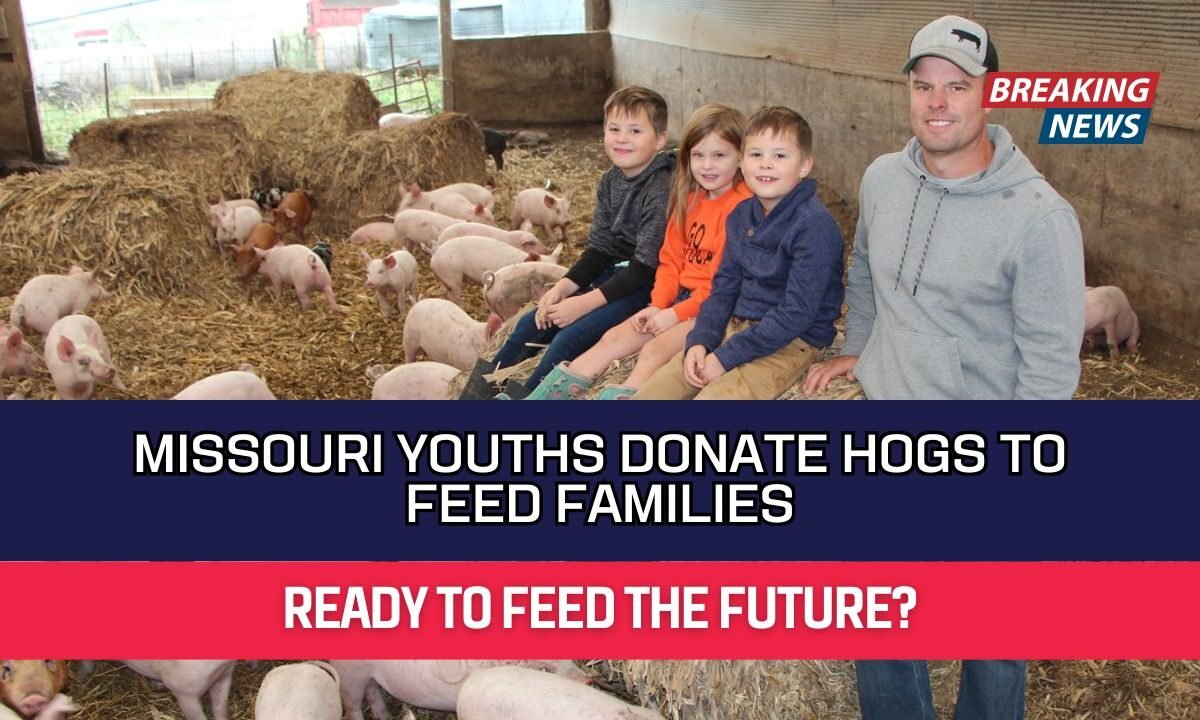In Missouri, a group of young students has shown how small acts of kindness can make a big difference. These local youths decided to donate hogs they had raised to help provide food for struggling families in their community.
At a time when grocery prices continue to rise, and many families are finding it harder to afford meals, this donation is a shining example of community spirit, compassion, and responsibility.
Why the Hog Donation Matters
The cost of living in the United States, especially food prices, has been rising steadily. Many families are forced to cut back on nutritious meals because of limited budgets.
By donating hogs, these Missouri youths are doing more than just helping—they are ensuring that families in need get fresh meat, which is often the hardest food item to afford for low-income households.
Unlike monetary donations, this act directly provides nutritious food to tables. A single hog can feed multiple families, making this initiative extremely impactful.
Who Are These Missouri Youths?
The young people involved in this act are members of 4-H and Future Farmers of America (FFA). These organizations encourage children and teenagers to learn about agriculture, farming, leadership, and community service.
Through programs like raising animals, planting crops, and working on farm projects, the students gain valuable life skills.
But this time, they went beyond learning—they practiced true generosity. Donating the hogs they raised shows their maturity, compassion, and sense of responsibility toward their community.
How the Donation Process Works
Here’s how the process unfolded:
- The hogs, raised by the youths, were handed over to a processing plant.
- The hogs were then butchered and processed into pork cuts in a clean and safe way.
- The packaged meat was sent to food banks, pantries, and charity kitchens.
- Finally, the food was distributed among families who needed it most.
This process ensures that the meat goes directly from farm to families, with no wastage.
Impact on the Community
The hog donation had a big impact on the local community. For struggling households, having access to fresh pork meant more balanced and filling meals.
Many families rely only on food banks, which usually distribute canned food or dry goods. Adding fresh protein greatly improves health and meal quality.
For the donors, the experience was just as important. They felt the satisfaction of knowing their hard work was used for helping others instead of just winning ribbons at fairs or making profits. It showed them that even young people can make a difference in fighting hunger and poverty.
Benefits of the Hog Donation
| Benefit Type | Details |
|---|---|
| For Families | Provides fresh, high-quality protein for nutritious meals |
| For Food Banks | Reduces pressure on resources and improves food variety |
| For Community | Promotes unity, care, and mutual support |
| For Youths | Builds leadership, responsibility, and real-world impact |
| For Agriculture | Shows the role of farming in solving real-life problems |
Lessons for the Future
This donation sets an example for other communities. If more youths across the U.S. take part in such initiatives, it could greatly reduce hunger in small towns and rural areas. It also proves that agriculture is not just about farming—it is about helping society.
Schools and youth programs can encourage students to participate in similar donation projects, such as giving away crops, eggs, milk, or even helping with community gardens. The ripple effect of such actions can change hundreds of lives.
The story of Missouri youths donating hogs to families in need is not just about food—it’s about kindness, leadership, and community values. These young people have shown that age does not define one’s ability to help others.
Their generosity brought meals to struggling households, inspired hope, and set an example for everyone. At a time when many are battling financial challenges, their actions remind us that small steps of compassion can create a big impact in society.
This act of giving proves that when communities come together, no family should have to go hungry.




